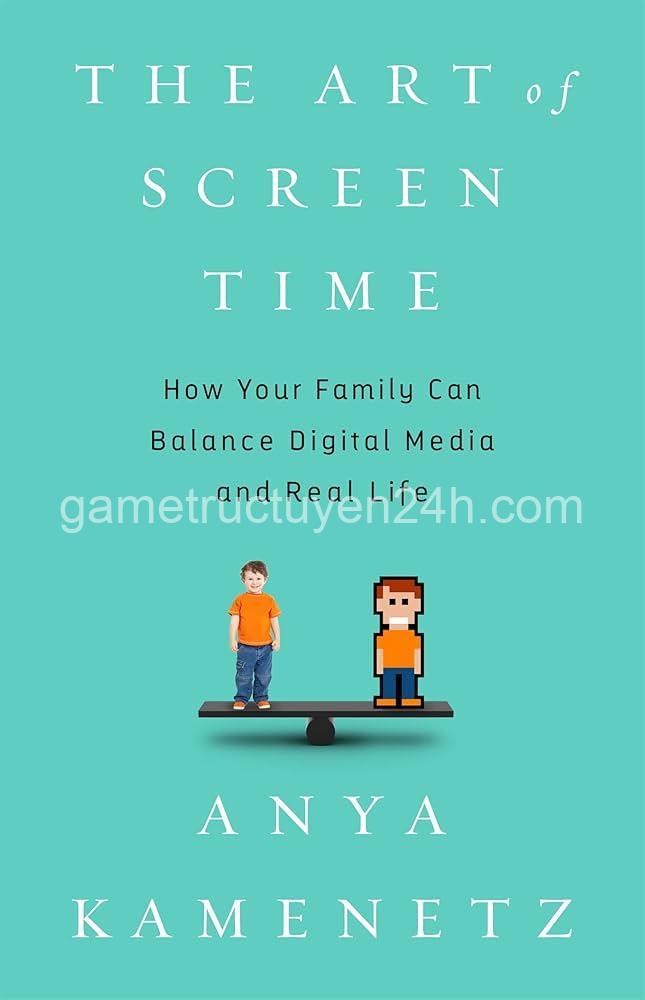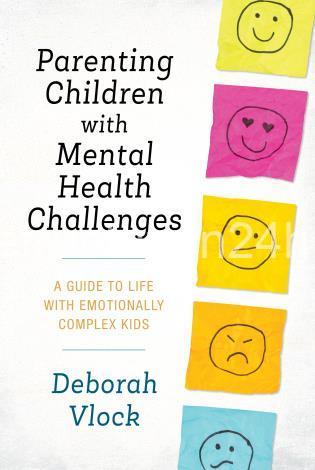Parenting Author Credibility: How to Spot the Real Experts. In today’s article, gametructuyen24h.com will explore with you in the most detailed and complete way. See now!
The Importance of Credibility in Parenting Advice
Parenting advice has a huge impact on child development and family well-being. Choosing the right path for your family depends on having the right information. When you rely on unreliable or inaccurate information, you might unknowingly put your child’s development or safety at risk.
That’s why it’s essential to be critical and discerning when reading parenting books, articles, or blogs. You need to find advice that’s not just based on someone’s opinion, but on solid research, ethical practices, and proven results. This is where assessing an author’s credibility is key.

Evaluating an Author’s Credentials and Experience
Educational Background:
It’s important to consider the author’s education and training. A degree in psychology, child development, or education shows a strong foundation in the field. Look for authors who have specialized in areas relevant to your needs, like child psychology, early childhood education, or special needs. While personal experience as a parent is valuable, it’s not a substitute for formal training.
Professional Experience:
Don’t just consider education, look for authors with practical experience working with children and families. This might include therapists, educators, social workers, or other professionals who work directly with children. Research experience is also valuable, especially in relevant fields like child development or family studies.
Assessing Research and Evidence-Based Practices
Credible parenting advice is grounded in scientific research and studies. Authors should cite their sources, avoiding anecdotal evidence or personal opinions that aren’t backed up by data. Peer-reviewed journals and academic publications are gold standards for credible research.
Beyond research, it’s important to find advice that’s practical and actionable. A good author will translate research into steps you can take to improve your parenting skills and create a healthy family environment.
Identifying Potential Bias and Ethical Considerations
Objectivity and Bias:
Be aware of potential biases that might influence an author’s advice. It’s important to be aware of the author’s personal beliefs, ideologies, or financial interests that could impact their perspectives.
Respectful and Inclusive Language:
Look for authors who use respectful and inclusive language. They should avoid harmful stereotypes or generalizations and embrace a culturally sensitive and diverse approach.
Evaluating an Author’s Reputation and Feedback
To gauge an author’s credibility, look for independent reviews and recommendations. Check out reputable review sites, professional organizations, or online communities for feedback from other parents or professionals.
Consider the author’s track record: Do they consistently provide valuable content? Have they authored multiple books or articles on parenting? A history of success and positive feedback is a good sign of credibility.
Resources for Finding Credible Parenting Information
For additional information and support, explore resources from reputable organizations, like the American Academy of Pediatrics, the National Association for the Education of Young Children, or the Child Welfare Information Gateway. Websites and publications from these organizations are known for their research-based content and commitment to child well-being.
Conclusion: Being a Discerning Consumer of Parenting Information
By considering an author’s credentials, research, ethics, and reputation, you can make informed decisions about the parenting advice you choose for your family. Don’t just rely on the first blog or book you come across – take the time to investigate the author’s background and the quality of their work.
Keep learning and exploring different perspectives on parenting. Leave comments, share your thoughts, and continue your journey to becoming a more informed and confident parent. And for more helpful resources and information on a range of topics, visit gametructuyen24h.com.
FAQs
What are some red flags to look for when evaluating a parenting author?
- Unclear or questionable credentials: Be wary of authors with vague or limited qualifications in the field of child development or related disciplines.
- Lack of research support: An author who relies primarily on anecdotes or personal opinions without citing research studies may not be credible.
- Biased or prejudiced language: Look for authors who promote respectful and inclusive language, avoiding harmful stereotypes or generalizations.
- Overly simplistic or overly complex advice: A good parenting author will present information in a clear and accessible way, avoiding overly simplistic or overly complex solutions.
- Financial conflicts of interest: Be mindful of any potential financial ties that may influence an author’s advice or recommendations.
What are some questions to ask myself before choosing a parenting book or blog?
- What is the author’s expertise in child development or parenting?
- What evidence does the author use to support their claims?
- Does the author consider different parenting styles or perspectives?
- Has the author received positive reviews or recommendations from other parents or professionals?
How can I find credible parenting information online?
- Look for websites and publications from reputable organizations: The American Academy of Pediatrics, the National Association for the Education of Young Children, and the Child Welfare Information Gateway are great resources for evidence-based parenting advice.
- Check for reviews and recommendations: Explore websites like Amazon or Goodreads for reviews from other parents, or read recommendations from trusted sources like parenting experts or child development professionals.
- Look for authors with credentials and experience: Pay attention to the author’s qualifications and practical experience in the field of child development or parenting.
What are some examples of credible parenting authors?
- Dr. Laura Markham: A clinical psychologist with a focus on parenting, mindfulness, and child development.
- Janet Lansbury: An early childhood educator and author known for her gentle and respectful parenting approach.
- Dr. Becky Kennedy: A child psychologist who offers practical strategies for managing children’s emotions and behavior.
- Dr. William Sears: A pediatrician and author known for his expertise in attachment parenting and breastfeeding.
How can I make sure I’m not being swayed by personal biases?
- Be aware of your own biases: Consider your own beliefs and values about parenting, and how they might influence your perception of different authors or advice.
- Seek out diverse perspectives: Read from a variety of authors with different backgrounds and approaches to parenting.
- Be critical of information: Don’t take everything you read at face value. Question assumptions and seek out evidence to support claims.
EAV
- Entity: Parenting Author, Attribute: Educational Background, Value: PhD in Child Development
- Entity: Parenting Author, Attribute: Professional Experience, Value: Licensed Psychologist specializing in Child Psychology
- Entity: Parenting Book, Attribute: Research Support, Value: Cites peer-reviewed studies
- Entity: Parenting Website, Attribute: Credibility, Value: Endorsed by reputable organizations
- Entity: Parenting Blog, Attribute: Author Expertise, Value: Years of experience as a teacher and parent
- Entity: Parenting Advice, Attribute: Bias, Value: Objectively presented, avoiding personal opinions
- Entity: Parenting Author, Attribute: Reputation, Value: Positive reviews and recommendations
- Entity: Parenting Expert, Attribute: Ethical Considerations, Value: Prioritizes child well-being and safety
- Entity: Parenting Book, Attribute: Content, Value: Evidence-based, practical, and actionable
- Entity: Parenting Author, Attribute: Experience, Value: Extensive knowledge from direct work with children and families
- Entity: Parenting Blog, Attribute: Objectivity, Value: Clearly distinguishes facts from opinions
- Entity: Parenting Website, Attribute: Resources, Value: Links to credible research and organizations
- Entity: Parenting Author, Attribute: Inclusivity, Value: Represents diverse perspectives and cultural sensitivity
- Entity: Parenting Advice, Attribute: Origin, Value: Derived from research, not anecdotes
- Entity: Parenting Author, Attribute: Financial Interests, Value: Transparency about any conflicts of interest
- Entity: Parenting Book, Attribute: Style, Value: Clear, concise, and engaging
- Entity: Parenting Community, Attribute: Trustworthiness, Value: Promotes respectful and informative discussions
- Entity: Parenting Author, Attribute: Impact, Value: Proven track record of helping families
- Entity: Parenting Website, Attribute: Updates, Value: Regularly updated with new research and information
- Entity: Parenting Author, Attribute: Transparency, Value: Open about their personal experience and qualifications
ERE
- Entity: Parenting Author, Relation: Has, Entity: Educational Background
- Entity: Parenting Author, Relation: Has, Entity: Professional Experience
- Entity: Parenting Book, Relation: Cites, Entity: Research Studies
- Entity: Parenting Website, Relation: Endorsed by, Entity: Reputable Organizations
- Entity: Parenting Author, Relation: Provides, Entity: Evidence-Based Advice
- Entity: Parenting Author, Relation: Displays, Entity: Bias
- Entity: Parenting Author, Relation: Receives, Entity: Positive Reviews
- Entity: Parenting Author, Relation: Possesses, Entity: Ethics
- Entity: Parenting Book, Relation: Offers, Entity: Practical Solutions
- Entity: Parenting Author, Relation: Has, Entity: Impact on Families
- Entity: Parenting Author, Relation: Works with, Entity: Children and Families
- Entity: Parenting Blog, Relation: Provides, Entity: Resources and Links
- Entity: Parenting Author, Relation: Uses, Entity: Inclusive Language
- Entity: Parenting Advice, Relation: Based on, Entity: Research
- Entity: Parenting Author, Relation: Has, Entity: Financial Interests
- Entity: Parenting Book, Relation: Employs, Entity: Writing Style
- Entity: Parenting Community, Relation: Facilitates, Entity: Discussion
- Entity: Parenting Author, Relation: Shows, Entity: Transparency
- Entity: Parenting Website, Relation: Keeps, Entity: Information Updated
- Entity: Parenting Author, Relation: Acknowledges, Entity: Limitations
Semantic Triples
- Subject: Parenting Author, Predicate: Has, Object: Educational Background
- Subject: Parenting Author, Predicate: Has, Object: Professional Experience
- Subject: Parenting Book, Predicate: Cites, Object: Research Studies
- Subject: Parenting Website, Predicate: Endorsed by, Object: Reputable Organizations
- Subject: Parenting Author, Predicate: Provides, Object: Evidence-Based Advice
- Subject: Parenting Author, Predicate: Displays, Object: Bias
- Subject: Parenting Author, Predicate: Receives, Object: Positive Reviews
- Subject: Parenting Author, Predicate: Possesses, Object: Ethics
- Subject: Parenting Book, Predicate: Offers, Object: Practical Solutions
- Subject: Parenting Author, Predicate: Has, Object: Impact on Families
- Subject: Parenting Author, Predicate: Works with, Object: Children and Families
- Subject: Parenting Blog, Predicate: Provides, Object: Resources and Links
- Subject: Parenting Author, Predicate: Uses, Object: Inclusive Language
- Subject: Parenting Advice, Predicate: Based on, Object: Research
- Subject: Parenting Author, Predicate: Has, Object: Financial Interests
- Subject: Parenting Book, Predicate: Employs, Object: Writing Style
- Subject: Parenting Community, Predicate: Facilitates, Object: Discussion
- Subject: Parenting Author, Predicate: Shows, Object: Transparency
- Subject: Parenting Website, Predicate: Keeps, Object: Information Updated
- Subject: Parenting Author, Predicate: Acknowledges, Object: Limitations





